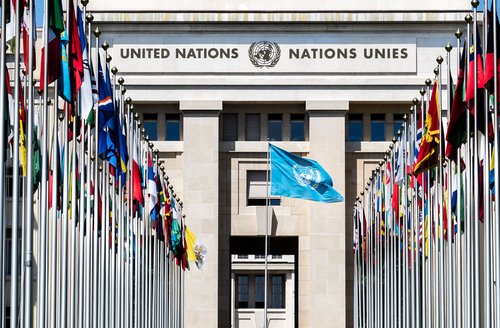Brussels (Brussels Morning) UN High Commissioner for Human Rights, Michelle Bachelet has condemned Israel’s designation of eight civil society organisations as terrorists, calling it an attack on human rights, on freedom of association, opinion and expression and on the right to public participation. On Tuesday, Bachelet appealed to Israel to revoke the criminalisation of the groups, describing them as “some of the most reputable human rights and humanitarian groups in the occupied Palestinian territory [that] for decades have worked closely with the UN.”
The UN says that the eight organisations provide vital peaceful human rights services in Palestine that include helping organise activities for women in the West Bank and providing legal aid to Palestinians in detention.
Bachelet said that Israel’s use of the terrorism designation amounted to a political ploy to quash dissent, silence unpopular views and limit the peaceful activities of civil society. She reiterated the importance of abiding by international law with regard to “human rights obligations, proportionality, equality and non-discrimination”.
“Claiming rights before a UN or other international body is not an act of terrorism, advocating for the rights of women in the occupied Palestinian territory is not terrorism, and providing legal aid to detained Palestinians is not terrorism,” Bachelet declared.
The High Commissioner pointed out that the organisations, which include some of the key partners of the UN Human Rights Office, “face far-reaching consequences as a result of this arbitrary decision, as do the people who fund them and work with them.”
According to Bachelet, the designation contravenes the right to freedom of association of the individuals affected and has a “chilling effect” on human rights defenders and civic society in Palestine. She noted that any restrictions on the right to freedom of association must meet a “strict test of necessity and proportionality.”
Problematic counter-terrosim law
Bachelet asserted that the action taken by the Israeli authorities served to highlight how problematic Israel’s counter-terrorism law is, citing its overly broad definition of terrorism, inherent problems of due process and “the manner in which it allows evidence to be kept secret.”
Manu Pineda, the EU Chair of the delegation for relations with Palestine, wrote in a letter on Monday to the European Parliament that he was “deeply concerned” with Israel’s designation of Palestinian rights groups as terrorists.
Pineda stressed “the clear position” of the UN Human Rights Office in occupied Palestinian territory, which calls for Israel to “fully respect the rights to freedom of association and expression, without any interference of harassment against the organisations or their staff.” He warned that this—the designation of the rights groups as terrorists—is the “last step in a campaign to de-legitimise Palestinian human rights organisations and civil society.”
The justification coming from the Israeli Minister of Defence is that the organisations are colluding with the Popular Front for the Liberation of Palestine (PFLP) and that they obtained financial resources, which in practice reached the “[PFLP] terror activity” or supported their activities. In response, the UN stated that “no evidence [had been] presented to support these accusations, no information on the type of alleged PFLP terror activity, nor has any public process been conducted to establish the allegations.”
The legality of the designation falls within the Israeli Counter-Terrorism Law of 2016, which the UN criticises as being based on “extremely vague or unsubstantiated reasons.” The law sets out prison sentences of 5-to-25 years in prison for staff and members of terrorist-classified organisations. Under the law, supporters of the groups —support defined as including financial aid or merely publishing words of “praise, support or sympathy” — is punishable with prison sentences of 3-to-5 years in jail.




